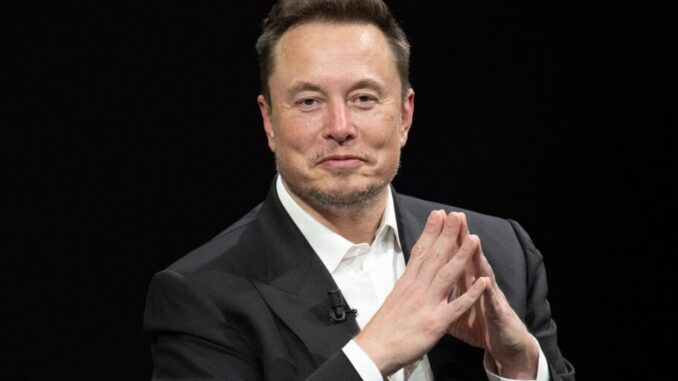
Tesla CEO Elon Musk said he sees a future where humans will have to figure out new ways to give their lives purpose, thanks to advancements in artificial intelligence and robotics.
During a panel discussion at the 2024 All-In Summit hosted by the All-In Podcast on Monday, Musk echoed comments he made during a fireside chat at the AI Safety Summit in Bletchley Park in England last year. He said he foresees a future where a human workforce is a thing of the past.
“I think the actual issue, the most likely issue, is how do we find meaning in a world where AI can do everything we can do, but better? That is perhaps the bigger challenge,” Musk said.
He noted that the Turing test, once a benchmark to measure how convincingly a computer could emulate human conversation, is no longer relevant.
“Although at this point, I know more and more people who are retired, and they seem to enjoy that life, but I think that maybe there’ll be some crisis of meaning because the computer can do everything you can do, but better,” he reiterated.
This shift, Musk said, would be aided by the development of autonomous cars and humanoid robots, which could infinitely increase economic growth and productivity.
“If you’ve got humanoid robots—when there’s no real limit on the number of humanoid robots—and they can operate very intelligently, then there’s no actual limit to the economy in it,” he said. “There’s no meaningful limit to the economy.”
Musk said that through the development of the Optimus robot at Tesla, the company has learned a lot about how the human body works and why it is shaped the way it is. He pointed to the shape of the fingers and thumb, which will guide future developments of Optimus.
“The current version of the Optimus hand has the actuators in the hand and has only 11 degrees of freedom, so it doesn’t have all the degrees of freedom of the human hand, which has—depending on how you count—roughly 25 degrees of freedom,” he said, adding that this limits how strong the robot can be.
“The next generation Optimus hand, which we have in prototype form, the actuators have moved to the forearm, just like a human, and they operate the fingers through cables, just like the human hand,” Musk said. “The next generation hand has 22 degrees of freedom, which we think is enough to do almost anything that a human can do.”
Musk, along with Tesla, is in a race to build and bring large-scale humanoid robots to the market against rival developers, including Figure AI, OpenAI-backed 1X, Meta, Nvidia, and German car manufacturer Mercedes-Benz.
Because of the push to develop AI-powered humanoid robots for home and business, Musk said he foresees them outnumbering humans two-to-one someday.
“I think the number of robots will vastly exceed the number of humans,” he said. “You have to say, ‘Who would not want their robot buddy?’ Everyone wants a robot buddy.”
Generally Intelligent Newsletter
A weekly AI journey narrated by Gen, a generative AI model.





Be the first to comment